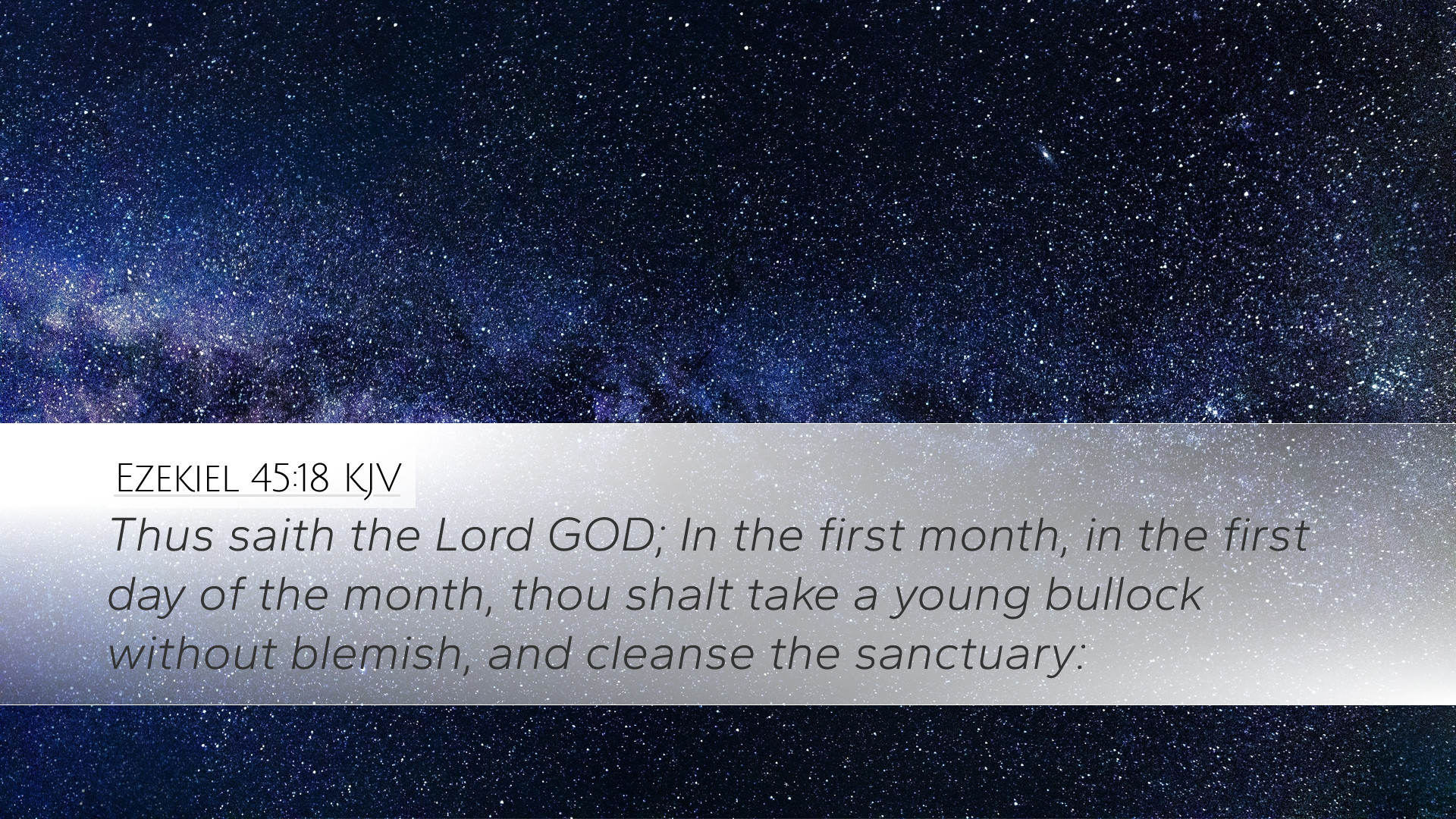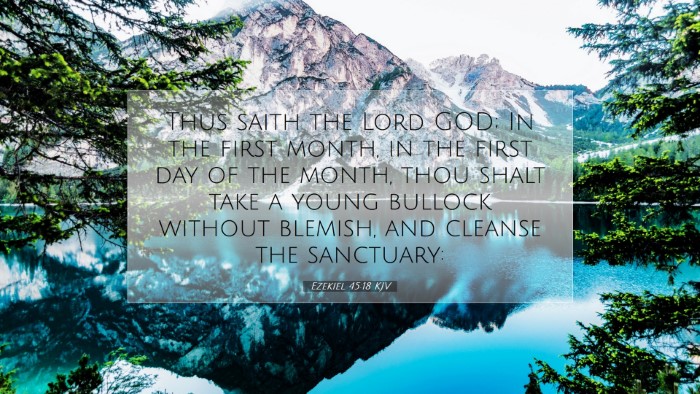Commentary on Ezekiel 45:18
Verse: "Thus saith the Lord God; In the first month, in the first day of the month, thou shalt take a young bullock without blemish, and cleanse the sanctuary."
Introduction
This verse is situated in a significant section of the book of Ezekiel, wherein the prophet outlines God’s intentions for the future temple, worship, and the management of the people of Israel. As such, this verse highlights the divine instructions regarding the sacrificial system that was to be instituted in the new order.
Significance of the Month and Day
First Month: The reference to the first month holds profound significance as it corresponds to the month of Nisan, which is the month of Passover. This beginning of the religious calendar underscores the theme of renewal and a fresh start for the people of Israel after their period of exile.
First Day: The choice of the first day signifies a new commencement. It symbolizes not only the initiation of the religious year but also the restoration of the covenant relationship between God and His people.
Instructions for Sacrifice
Ezekiel, as a mouthpiece for the Lord, conveys specific instructions regarding the offering of a young bullock without blemish. This serves multiple purposes:
- Symbol of Purity: The requirement for a blemish-free offering highlights God's insistence on purity and holiness in worship. It reflects an overarching biblical principle that God desires our best and purest offerings.
- Foreshadowing the Messiah: The young bullock, as a sacrificial animal, foreshadows the ultimate sacrifice of Christ, who is the Lamb without blemish and spot (1 Peter 1:19). This connection is pivotal for understanding how the Old Testament sacrificial system prefigures New Testament themes.
- Restoration of Worship: The act of cleansing the sanctuary signifies the restoration of proper worship practices among the Israelites. It reflects God’s readiness to dwell among His people once more, granting them access to His presence.
Theological Implications
The implications of this verse extend beyond its immediate context. The act of taking a young bullock to cleanse the sanctuary serves as a reminder of several vital theological tenets:
- The Holiness of God: This verse emphasizes the absolute holiness of God and the necessity for His people to approach Him with reverence, acknowledging His purity and righteousness.
- The Need for Atonement: The sacrificial system illustrates the necessity of atonement for sins, providing a means for reconciliation with God. This sets the foundation for understanding sin's ramifications and the grace that God extends to humanity.
- Covenantal Relationship: This ritual signifies the renewal of the covenant. God’s people are once again being called to reaffirm their commitment to His statutes and to live in obedience to His commands.
Practical Applications for Today
For pastors, students, theologians, and Bible scholars, the teaching from Ezekiel 45:18 carries several practical applications:
- Examining Worship Practices: This text invites contemporary believers to evaluate their own worship practices, ensuring they conform to the principles of holiness and reverence before God.
- Recognition of Christ as the Ultimate Sacrifice: Understanding the sacrificial system leads to a deeper appreciation for Christ’s atoning work on the cross, emphasizing the relevance of New Testament teachings and the necessity of faith in Him.
- Encouragement for Renewal: Just as the Israelites were called to cleanse the sanctuary, pastors can encourage their congregations to engage in spiritual renewal and purification as part of their walk with God.
Conclusion
Ezekiel 45:18 encapsulates the heart of God's instructions for His people during a pivotal time in their history. By directing them to perform sacrifices and cleanse the sanctuary, God is reiterating the essential nature of holiness, sacrifice, and the covenant relationship. As modern believers reflect on this passage, they are called into a deeper understanding of God's holiness and grace, which invites them to live faithfully in relationship with Him.


